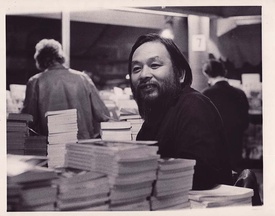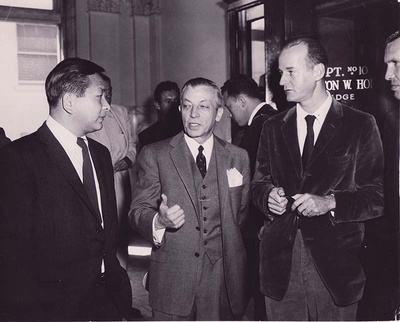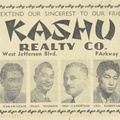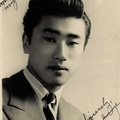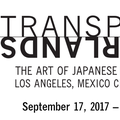“Imagine being arrested for selling poetry!” So were the astonished words of Shigeyoshi Murao, the legendary manager for over two decades of City Lights Bookstore, literary haven for bookworms worldwide. But in the summer of 1957, the Japanese American book clerk, affectionately known as “Shig” by everyone in the neighborhood, was in fact arrested on charges of obscenity after selling undercover San Francisco police officers a copy of Allen Ginsberg’s Howl and other Poems.
Murao is virtually unknown to today’s generation, but several years ago, with the encouragement of Paul Yamazaki (incidentally another Japanese American who is the current bookbuyer at City Lights Books) I began delving into the archives of people's memories and tracing Shig's life history, mostly through a network of interviews with people who he had influenced over the years. In the process, I discovered that Shig was no ordinary JA, shirking into the role of the silent minority following the harrowing years spent in an American concentration camp located in Minidoka, Idaho. Shig was an anarchist of sorts, a maverick dealer who lead a revolution through selling books with guts and soul, and who quite accidentally, yet unwaveringly, took a stand before the entire nation to defend one’s right to free expression. He was also a confidant for nearly every major San Francisco literary figure that haunted the book scene; the man responsible for creating the very ambience, the heart of City Lights bookstore.
In 1956, City Lights owner and publisher Lawrence Ferlinghetti released poet Allen Ginsburg's book, Howl as Number Four in the Pocket Poets Series, which led to the arrest in May 1957 of Ferlinghetti and Shigeyoshi Murao on the charges of obscenity. Howl is often referred to as the "Beat Manifesto," and became one of the most influential books of twentieth century American poetry. Against the background of heightened publicity, Judge Clayton W. Horn, a Sunday School bible teacher, found Ferlinghetti and Murao not guilty in October 1957, a triumph for twentieth century literature and the freedom of speech for generations to come.
Despite the fact that Shig Murao was arrested at City Lights for selling Howl and Other Poems to an undercover cop, taken to the SF police department for fingerprints and a mug shot, and actually stood trial with Ferlinghetti in court, Epstein and Friedman, the makers of the new film entitled HOWL, deemed him an unnecessary character. Erased.
Without a doubt, it is a slap in the face to witness the deliberate act of writing people of color out of the mainstream history and culture. Because the main character of the film was the poem "Howl" and not really Ginsberg himself, many important people in Ginsberg's life were excised out, or relegated to the role of cardboard mugs of handsome men and women in their clunky 50s eyewear and cardigans. I can't help but wonder, at what point in the screenplay that it was agreed that Murao was a disposable character? How was the inclusion of Shig as a co-defendant (as was historically accurate) hindering the script? What gains were made by steamlining a piece of the story that might have brought a much needed twist of irony and complexity to the film?
I'm not the only indignant fan of Shig Murao out there to pronounce his significance in San Francisco, literary and first amendment history. Last month, Richard Reynolds launched a terrific website, www.shigmurao.org, dedicated to the memory of Shig Murao chock full of amazing photographs and stories from those who knew and loved this salty, bearded character behind the book counter and deemed him worthy of a place in the HOWL story. There are a dozen things one can do with a website that I cannot do with a biography, and thus, I warmly welcome and applaud Richard for his tremendous work to honor Shig.
Having never met Shig (he died in 1999 in Cupertino, California), I can only speculate about the depths of his extraordinary character and fierce pride, which was countered by his boundless capacity to share in his knowledge of books. According to some, if Shig was ever down on any particular poet, it was because of a certain dishonesty in their character, their approach, that didn’t make the cut. It is said that he was always looking for the authentic in every person, and I can imagine that that was an issue which he was confronted with personally. Yet what Shig understood most and created in his time was a destination for the restless mind, for those who were seeking answers. The City Lights that Shig built was a respite from the world: part clubhouse, part spontaneous art happening, where you could come in, sit forever, and read.
Shig once said: “ I went on to a twenty-four year career of selling books. I became famous for selling bad poetry; but, I sold some good ones too. Howl was one of them.”
* * *
For a more complete story on the omission of Shig Murao from the HOWL film, see JK Yamamoto's article "Murao is Missing."
Richard Reynold's website is also actively collecting more stories about Shig at www.shigmurao.org.
© 2011 Patricia Wakida


